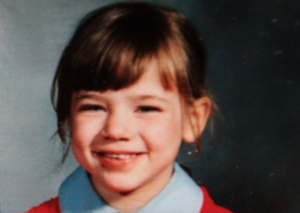When the man charged with Miss M’s rape was finally brought to trial in 2015, she was determined to face him. “I thought: ‘Why should I have to hide away?’” So, she refused a screen. She also wanted to sit through the proceedings. Miss M, then 18, had been drunk on the September night in 2013 that Stephen Coxen — a stranger she met in a nightclub — pushed his way into her home and raped her; she wanted to hear all the medical evidence and witness statements, to help make sense of what had happened.
But she was told her presence in the courtroom “would give a bad impression”. What the prosecuting counsel meant by that was: a jury might expect a real rape victim to be too distraught to listen to the details of the attack; by doing so, she might undermine her credibility. Instead, she sat outside the court while her elder brother relayed all the details.
Miss M had been traumatised by the performative nature of the cross-examination — the way the defence advocate (the Scottish equivalent of a barrister) “played to the jury” as he repeatedly accused her of lying. When Coxen was acquitted, via Scotland’s controversial and soon-to-be-scrapped Not Proven verdict, she was left asking herself what she had done wrong.
“So much of it seemed to come down to the way we, as complainers, present to the jury,” she says, “the way we have to behave in order to be seen as ‘good victims’. I wondered: ‘Should I have behaved in a different way? Would the jury have seen me as a victim if I had demanded a screen?’”
Three years later, Miss M successfully brought civil proceedings against Coxen. Unlike in criminal cases, in civil courts complainers are offered a choice: between having their case decided by a jury or a sheriff. Miss M opted for a sheriff. This time, she says, she was able to sit in her own section of the court, rather than in the public gallery — and all the theatrics were gone. “The questioning style of the defence advocate in the civil case was so much better,” she says. “He had to do his job and test my evidence, but he wasn’t playing a game; he wasn’t trying to get a reaction out of me.”
As one of only two women in Scotland who have experienced both a criminal and civil rape case, Miss M could be regarded as a litmus test in the hostile debate currently polarising the country’s criminal justice system. It centres on a proposal — to find out what would happen if a rape trial took place without a jury.
On one side of this debate are Lady Dorrian, Scotland’s second most senior judge; the Lord Advocate, Dorothy Bain; and Rape Crisis Scotland. All of them are currently backing a pilot of juryless rape trials — proposed in the Victims, Witnesses, and Justice Reform (Scotland) Bill currently going through Parliament. On the other side of the debate is (almost all of) the rest of the legal profession: the Law Society, most KCs, and the Scottish Solicitors Bar Association (SSBA), which represents defence solicitors and has already pledged to boycott the pilot.
Those in favour of it believe some jurors allow their judgement to be influenced by “rape myths” — the myth that false allegations are common, for example, or that a delay in reporting makes a complainer less credible. They argue that defence lawyers play up to those myths — and point to the low conviction rate — 51% for rape compared to an overall conviction rate of 91% across all offences. Juryless trials, proponents contend, could provide a more effective, less adversarial process.
Those against the pilot see it as a direct attack on one of the most sacred tenets of British justice: if members of the public can be trusted to deliberate on complicated fraud cases, if they can be trusted to set aside racial or sectarian prejudices, why can’t they be trusted to disregard rape myths? They also argue that the low conviction rate is not down to rape myths but to insufficient evidence. “I have never seen anything to suggest juries don’t convict in cases where the charge has been proved beyond reasonable doubt,” says Thomas Leonard Ross KC.
“A lot of rape cases come down to the question of consent; they rest on the jury accepting the credibility of one individual over another. Both parties may be believable, but the jury is told it’s not a straight 50:50. It’s up to the Crown to prove the case. If the jurors feel they couldn’t have it on their conscience for someone to be jailed for six years on the basis of the evidence they’ve heard, they will [acquit].”
Ross says changes to the system mean defence advocates now face heavy restrictions, known as rape shield provisions, in what questions they can ask — to the point where material they consider significant is being deemed inadmissible. He agrees that questions about previous sexual history are not appropriate, but he says restrictions “can even include what happened in the lead-up to the alleged incident. Take a situation where a girl texted a boy earlier in the evening to suggest they meet up for sex, though she had told the police a different story. Of course she is entitled to change her mind, but, at the very least, these messages show she was not honest in her initial statement.”
Over the last 12 months, the defence lawyers’ outrage has spilled out into the media — with the most senior woman at the Scottish Bar comparing the proposal to Adolf Hitler’s scrapping of juries after the 1933 Reichstag Fire trial. That the debate has become so acrimonious can be partly explained by the context in which it is unfolding. The pilot is just one of a panoply of proposed reforms — which include scrapping the Not Proven verdict, reducing the number of jurors from 15 to 12, and setting up a specialist sexual offences court. And it coincides with an exodus of defence solicitors, after dramatic cuts in the Scottish government’s funding of legal aid.
One lawyer, who did not want to be named, pointed to the fact that criminal defence solicitors earn far less than those working for the prosecuting authority — even though the former work longer, more unsociable hours. “It’s not just that defence solicitors feel they are being screwed — although they are,” he says. “It’s the visible reality that the whole justice system is in ruins.”
So, resentful as they are about their own plight, defence solicitors may be predisposed to oppose a reform that will change the way their clients are represented — and on which, they insist, they were not properly consulted.
But the juryless rape trial pilot is also caught up in the backlash to the #MeToo movement. Some defence lawyers I spoke to believe the pendulum has already swung too far in favour of rape complainers, and that “special interest” organisations such as Rape Crisis Scotland — and, in particular, its chief executive Sandy Brindley — are pursuing a feminist agenda.
For their part, feminist campaigners accuse the Faculty of Advocates of misogyny. They cite, for instance, its failure to adequately deal with lawyers such as Brian McConnachie KC — who in 2020 said in a text that he “might shag [Sandy Brindley], just to have something over her”.
McConnachie also sent a sexually explicit photograph of himself from the toilets of a High Court — shortly after defending a rape accused. It took three years for him to be fined £8,000 for professional misconduct. He was not suspended from practising as a lawyer or expelled from the Faculty.
There are many legitimate questions to be asked about potential juryless rape trials. It’s unsurprising though, that for some, the legal profession’s “nothing-to-see-here” attitude smacks of complacency.
Appearing before Holyrood’s justice committee in January, the Lord Advocate delivered a damning assessment of the experience of rape complainers: “What is happening at the moment just isn’t good enough,” said Dorothy Bain.
“All the efforts made over the years to bring in changes, such as the rape shield provisions … and supportive measures for vulnerable witnesses — none of that has shifted the dial on the basic problems: complainers’ anxiety about becoming involved in any way in the criminal justice process … and a lack of understanding and support that leaves them feeling abandoned.”
The Lord Advocate said “the ordinary adversarial approach” was not suited to sexual offence cases and referenced an appeal court judgement from 2020 — in which the complainer had been awarded damages for trauma caused by serious deficiencies in the way the trial was carried out. Scotland’s most senior judge, Lord Carloway, criticised the judge, the Crown and the Defence, adding that the woman had been subjected to repetitive, and at times irrelevant, questioning, without any intervention.
It was in this context that Lady Dorrian’s Review was set up, and her recommendations made. Of these, the pilot of juryless rape trials proved the most controversial. The research that informed it was contested. Analysis of the deliberations of “mock juries”, carried out by academics from Glasgow and Warwick Universities, found “considerable evidence” of jurors expressing unfounded assumptions. But a UCL study — which involved “real” jurors later completing a “rape myth” questionnaire — found that claims of bias in judging sexual offences cases were “not valid”. The two studies have been pitted against each other, though all that this contradiction demonstrates is the difficulty of gathering conclusive data when you are legally prevented from interviewing actual rape trial jurors about their actual deliberations.
Many of the details of the pilot — including its length and how it will be evaluated — are yet to be determined; but, if it is passed by Parliament, juryless rape trials will be used for all cases involving a single complainer and single accused.
The conviction rate for such cases is thought to be around 25%. Brindley, of Rape Crisis Scotland, claims this statistic shows “guilty men are regularly walking free”. She points to research from New Zealand showing that defence lawyers would opt for a jury nine times out of ten, because, when it comes to the credibility of the complainer, “it is easier to persuade a jury to entertain doubt”. This is not so very different from what Ross has told me; but while he views the caution of jurors as a crucial protection for the accused, Brindley views it as a barrier to securing justice for complainers.
Another potential benefit of the juryless rape trial would be the requirement that judges provide written “reasonings” for their decisions — something juries are not asked to do. The impact of such reasonings has already been seen in the three civil cases, in which the sheriff or judge’s explanations brought clarity and closure. “I was badly affected by not understanding why the Not Proven verdict had been given in the criminal trial,” Miss M says. The sheriff in the civil case found Coxen guilty on the balance of probabilities. “The judgement helped me understand what evidence had been considered important, and the thinking behind his decision.”
Defence lawyers on the other hand argue that judges are as likely to have unconscious biases as jurors — perhaps more so, given the narrow and socially-conservative demographic from which they are drawn. This is something that worries some complainers too. “The majority of judges are middle-aged, privately-educated men,” defence solicitor Matthew McGovern says. “This is significant when it comes to the type of single complainer/single accused rape cases the pilot is seeking to address, because those types of nights out, where there is alcohol and drugs consumption, are far removed from the lives judges have lived.”
Of even greater concern to McGovern, who is on the SSBA committee, is the possibility the pilot will place undue pressure on judges to return guilty verdicts. He believes this pressure would come not just from politicians — who might measure the success or failure of the pilot by its effect on the conviction rate — but also from public opinion, via the media.
“Juries are anonymous,” McGovern says. “Judges, on the other hand, are high-profile figures with accountability, but no right of reply. If they acquit ‘too many’ people, there will be FOI requests and front-page stories.
“I’m not suggesting those judges will be sitting there with a calculator working out how many people they should acquit and how many they should convict; but it will become an unconscious bias, which, ironically, is the very thing the pilot is seeking to address.”
Moreover, a lack of financial capacity means Scotland’s proposed juryless rape trials would be presided over by a single judge, rather than the panel of judges adopted in other jurisdictions that have dispensed with juries — most recently France. Simon di Rollo KC, who represented Miss M at her civil case, is one of the few advocates to broadly support a time-limited pilot — yet even he thinks a single judge set-up is less than ideal. “We all have our idiosyncrasies, and one person won’t necessarily spot everything,” he says. “The opportunity to discuss [the case] would obviously improve the decision-making process.”
With the Law Commission of England and Wales also proposing the introduction of juryless rape trials, the progress of the Victims, Witnesses, and Justice Reform (Scotland) Bill is being closely followed south of the border as well. Whether the pilot actually happens will depend at least in part on the Scottish government’s willingness to take on the SSBA — which is bent on a showdown. “No client of McGovern Reid will ever be exploited as part of a social experiment to satisfy the demands of the Special Interest Groups,” McGovern’s pinned tweet says.
“I think this is the hill [defence lawyers] are going to die on,” says Brindley. “You have to ask yourself what it is that they are scared of? Do they not trust judges to be able to evaluate evidence or is it that they trust judges too much to evaluate evidence and they worry there will be fewer acquittals?”
McGovern says his main fear is that the last remaining protections for his clients will be removed. He also fears the politicisation of the justice system will lead us into dark places. He says you only have to look at America to see what’s at stake: “Trump has politicised and weaponised the entire system; only anonymous juries have stood up to him.”
When I ask him if sabotaging a pilot passed by the Scottish Parliament would, in itself, be undemocratic, he insists the opposite is true. “First of all, [defence lawyers] are not compelled to try to make the best of what we consider to be poor legislation,” he says. “But also, we have concerns about the politicisation of the judiciary undermining the rights of ordinary citizens, so we think we are protecting democracy.”
Judge-only rape trials have the potential to forever change the Scottish legal system. Once juries are no longer inviolable, what’s to stop them being removed from other types of trials, such as those involving domestic violence, in which many of the same arguments would apply? No wonder the legal profession is so exercised. And yet, perhaps they do hold the answer to the problem Bain identified: the reluctance of many rape complainers to come forward, and the retraumatisation of those who do. We won’t know, unless the pilot goes ahead.
“Everyone keeps saying it’s not a fair trial without a jury, but I didn’t get a fair trial with a jury,” Miss M says. “When people say the name of the advocate that cross-examined me in the criminal trial it takes my breath away more than when they say ‘Stephen Coxen’.
“I know how much better the civil case, without the theatrics, was. It feels ridiculous that some lawyers aren’t willing to at least give the pilot a go.”
Disclaimer
Some of the posts we share are controversial and we do not necessarily agree with them in the whole extend. Sometimes we agree with the content or part of it but we do not agree with the narration or language. Nevertheless we find them somehow interesting, valuable and/or informative or we share them, because we strongly believe in freedom of speech, free press and journalism. We strongly encourage you to have a critical approach to all the content, do your own research and analysis to build your own opinion.
We would be glad to have your feedback.
Source: UnHerd Read the original article here: https://unherd.com/






